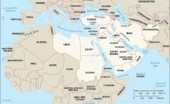Johannah Bernstein post: "eternally proud of my father’s extraordinary aeronautical engineering. legacy. here is a photo of the Canadair Water…
Wednesday Night #1097
Written by Diana Thebaud Nicholson // March 12, 2003 // Herb Bercovitz, John Ciaccia, Judith Patterson, Reports, Water, Wednesday Nights // Comments Off on Wednesday Night #1097
See also Wednesday-Night.com for more links, notes and photos
Special Guests
On the eve of the Third World Water Forum in Kyoto, Wednesday Night was particularly pleased to welcome Pierre Lussier, Director of la Corporation Saint-Laurent whose project Le cycle de l’eau, une action concertée et durable des jeunes pour mobiliser le Québec à la cause environnementale, has been chosen as one of 150 finalists worldwide, and will be honored at Kyoto.
Returning after long absences were Frank and Yolanda Kinnelly and Judith Patterson, Ph.D. Frank, a former U.S. diplomat, who served as science officer at the American Embassy in Ottawa, recently attended the 2003 Annual Meeting of the AAAS (American Association for the Advancement of Science) where a number of climate change, biodiversity and water issues were examined. Judith is associate professor in Geology at Concordia, where she lectures in both environmental science and geology.
Water, Water, Water
The Earth is facing a serious water crisis and, of all the social and natural resource crises we face, the water crisis is the one that lies at the heart of our survival and that of planet Earth. Today, more than 1.2 billion people currently lack access to safe water and 3 billion have inadequate sanitation. This leads to diseases that kill more than 5 million people each year, more than 2 million of them children under the age of five who succumb to diarrhea-related illnesses.
Water is one of the world’s most common if not the most common commodity,- the most widely occurring substance on earth. It is directly and indirectly essential for the maintenance of plant, animal and human life, – but almost ninety-eight percent is salt water. Of the remaining 2.53% fresh water, some two-thirds is locked up in glaciers and permanent snow cover. It is the maintenance of this very delicate balance that permits the maintenance of life on earth.
Global activities in water began with the Mar del Plata Conference in 1977. In 1992, two international conferences succeeded in placing water at the heart of sustainable development issues. The Dublin Conference of 1992 set out four Principles that remain at the basis of activities today. In the same year, the seven programme areas established at the UN Conference on the Environment and Development initiated essential changes in water management practices. Successive international conferences and the UN Summit of 2000 have reinforced the importance of water to the survival of our planet and its inhabitants.
It is believed that the accelerated melting of the ice cap may have cooled James Bay into which it flowed, as well as the surrounding ocean, causing the hitherto unexplained disappearance of fish stocks, mainly cod, from the waters surrounding the Maritime provinces.
In Canada, water flows through the great lake system, providing water for human and animal use as well as irrigation, flows out and is replenished each year, with no change in level over the long term. This is true for the smaller Canadian lakes as well.
Nature has chosen to distribute fresh water unevenly throughout the world, with total disregard for the distribution of human population. The total fresh water supply of Kuwait comes from the desalination of seawater, an extremely expensive operation, causing the cost of water in that country to exceed that of petroleum. In some developing countries, well water is available but the cost of digging wells exceeds the capacity of many of these countries to fund such projects, the object of several NGOs.
Burgeoning populations not only consume more life-sustaining fresh water, but also continue to exacerbate the problem by disposing of raw sewage into the water that sustains their life. Part of the problem is the absence of clear jurisdiction. Under the auspices of the United Nations, countries around the Mediterranean rim, even some who are hostile to one another, have, over the years, worked to diminish the dumping of raw sewage into the ocean.
In the light of the quest for fresh water from an ever-increasing world population, there is a growing demand for the transportation of fresh water from countries that allow great quantities of water to run off into the oceans to those that are in great need of water. Plans have been presented to sell water from a deep Newfoundland lake to the United States, or from rivers as they are about to enter the ocean, or to capture our melting icecap and transfer it by pipeline to water-starved areas of the United States and Canada. The proceeds of such sales of water would certainly enrich the provinces engaging in these sales, but experience has demonstrated that tampering with fresh water that naturally flows into the oceans, results in salination of the surrounding area.
Additionally, under the terms of NAFTA, once a sale of bulk fresh water has been made, it becomes a commodity over which neither Canada nor the provinces maintain control, which has been transferred to foreign commercial interests by that sale. This explains the federal Environment Minister’s insistence on maintaining water as an environment issue, rather than a trade issue.
One participant suggested that global warming is making us wetter. He argued that precipitation has increased by 3 inches, while evaporation in the worst years, has increased by 1.5 inches. So, if global warming causes climate changes, the result nationwide (U.S.) is an increase (not a decrease) of about 1.5 inches of available water in a bad year and 3 inches in an average year. In the face of general skepticism, he volunteered that his source was the Cato Institute (Drought-Inspired Climate Panic)
The War on Iraq (cont’d)
There are still many questions about the impending war on Iraq, its impact on the stock market and inflation as well as political implications. The market has discounted the war, a war that has been stalled by adverse reaction throughout the world including the (dis)United States, the equally (dis)United Kingdom and the (even-less) United Nations. Depending on the rapidity of the outcome, the stability of post-war Iraq and other uncertain variables in the world economy, we can anticipate an impressive rapid recovery in the stock market. The U.S. economy is doing well and the Canadian economy even better, which at near complete manufacturing capacity, merely awaits improved earnings to invest in new capacity.
Assuming a rapid, relatively bloodless U.S. victory and a stable, sustainable Iraqi replacement government, unquantifiable factors remain such as the reaction of other Muslim states, as well as the possible escalation of terror throughout the world emanating from dissatisfied, as-yet-unidentified groups.
The economy aside (yes, even on Wednesday Night this can happen), a number of disquieting moral and practical questions remain regarding the justifications for the war on Iraq and the ability of the United States and its coalition of the (un)willing, to rebuild that country. And what next? Will this action unleash a series of similar régime changes throughout the Middle East and elsewhere? How will George Bush and Tony Blair sell their people on prolonged military occupation? What will happen to Shiites in southern Iraq? And to the Kurds in the North? [If War Hits, Kurds See Way to Grab Old Lands]
Is the coalition prepared to deal with the ambitions of the Kurds to be reunited with their brethren in Turkey, Iran, Syria and the USSR in their own homeland – Kurdistan? And finally, is it conceivable that the world could go to war in the future over water? Why not? In the Middle East, conflicts over diminishing water supplies are quickly moving to the top of the political agenda. In Iraq, government water control projects have drained most of the inhabited marsh areas east of An Nasiriyah by drying up or diverting the feeder streams and rivers. Other problems include: inadequate supplies of potable water; the development of Tigris-Euphrates Rivers system is contingent upon agreements with upstream riparian Turkey; soil degradation (salination) and erosion; desertification. Can we envisage a time when intervention against environment-unfriendly governments would be an acceptable policy? And, if we can go to war over oil supplies, is it not equally conceivable that there will be wars over water supplies?
Oil
The impact of a possible move to the price of oil being expressed in euros has the potential, however small, to cause havoc with the U.S. economy, – an economy currently running a huge fiscal and current account deficit -, depending on what the importers do with the euros.
T H E I N V I T A T I O N
This Wednesday we will ask you to put a little (maybe even a lot of) water in your wine.
Having survived last week’s milestone transition from his sixties, John Ciaccia O.W.N. is off on Friday to the 3rd World Water Forum (WWF) in Kyoto. Join him and us this Wednesday for a discussion of some of the issues on the Agenda.
WATER, WATER ALL AROUND … But, in fact, it’s not, as Wednesday Nighters should know only too well.
Some principles to ponder:
Human beings must learn to respect the resource base on which life ultimately depends and to see land and water as two sides of the same coin. Having access to safe and sufficient water and sanitation are now recognized as basic human rights. Being able to wash one’s hands and drink clean water can have a major impact on family hygiene and health. Women play an especially important role in this process.
Because people who are poor are most likely to get sick, and ill health perpetuates poverty, it triggers a vicious cycle that hampers economic and social development.The challenge is to increase food production and security by getting ‘more crop per drop’, while also devising ways to ensure a more equitable allocation of water for food production. Since about 80% of the world’s water is used for irrigation, even small changes in the way crops are planted, watered and harvested can make a big difference. Competition over scarce or poorly allocated resources can lead to tension and insecurity. Therefore decision-makers, communities, governments and regions must strive to develop policies that allow for sharing among all stakeholders.
Equitable solutions must be found: between cities and rural areas, rich and poor, arid lands and wet lands, public and private, infrastructure and natural environments; mainstream and marginal groups, local stakeholders and centralized authorities.
NB
If you REALLY want to do some homework, go to www.unesco.org/water/ and read about The UN World Water Development Report, Water for People, Water for Life (Executive Summary in many languages can be downloaded), which will be launched at the WWF on March 22nd.


